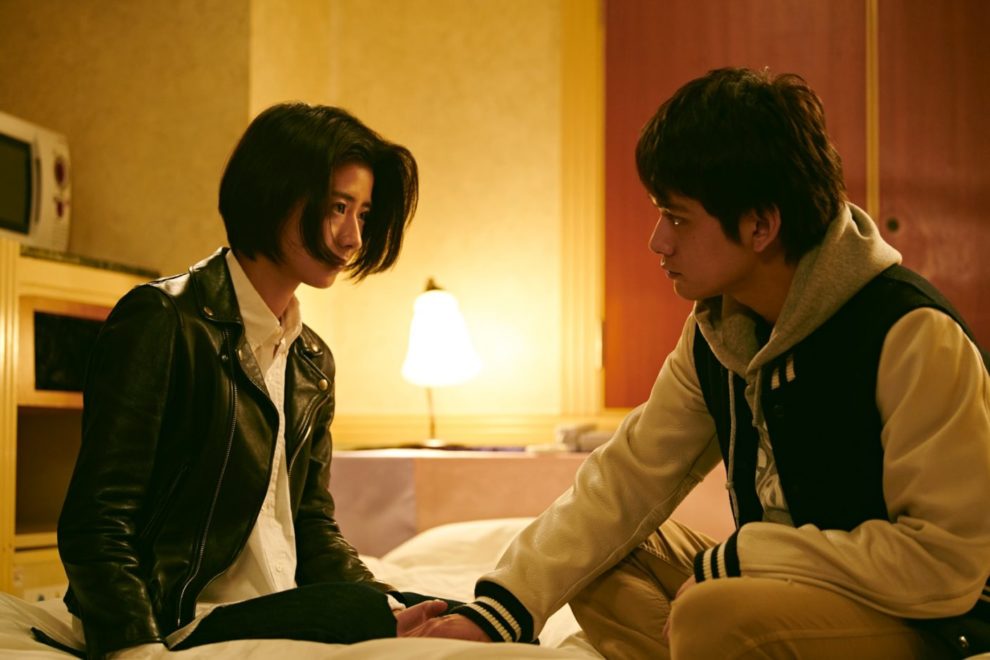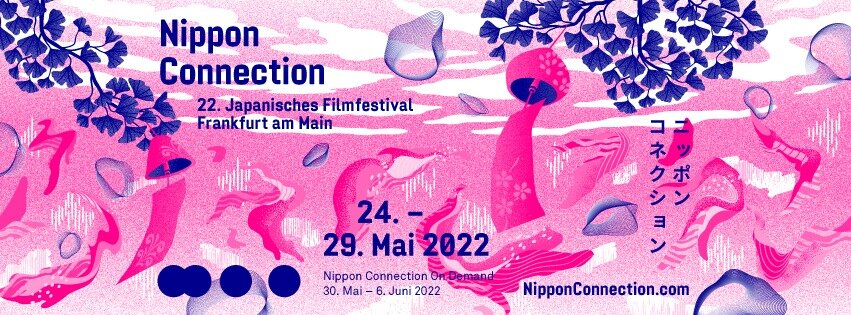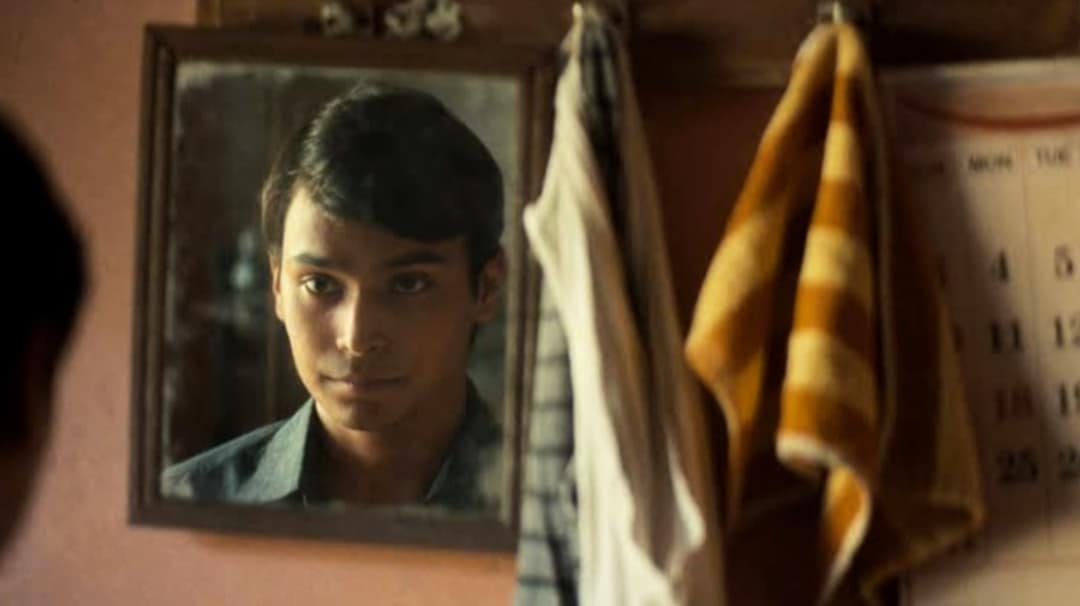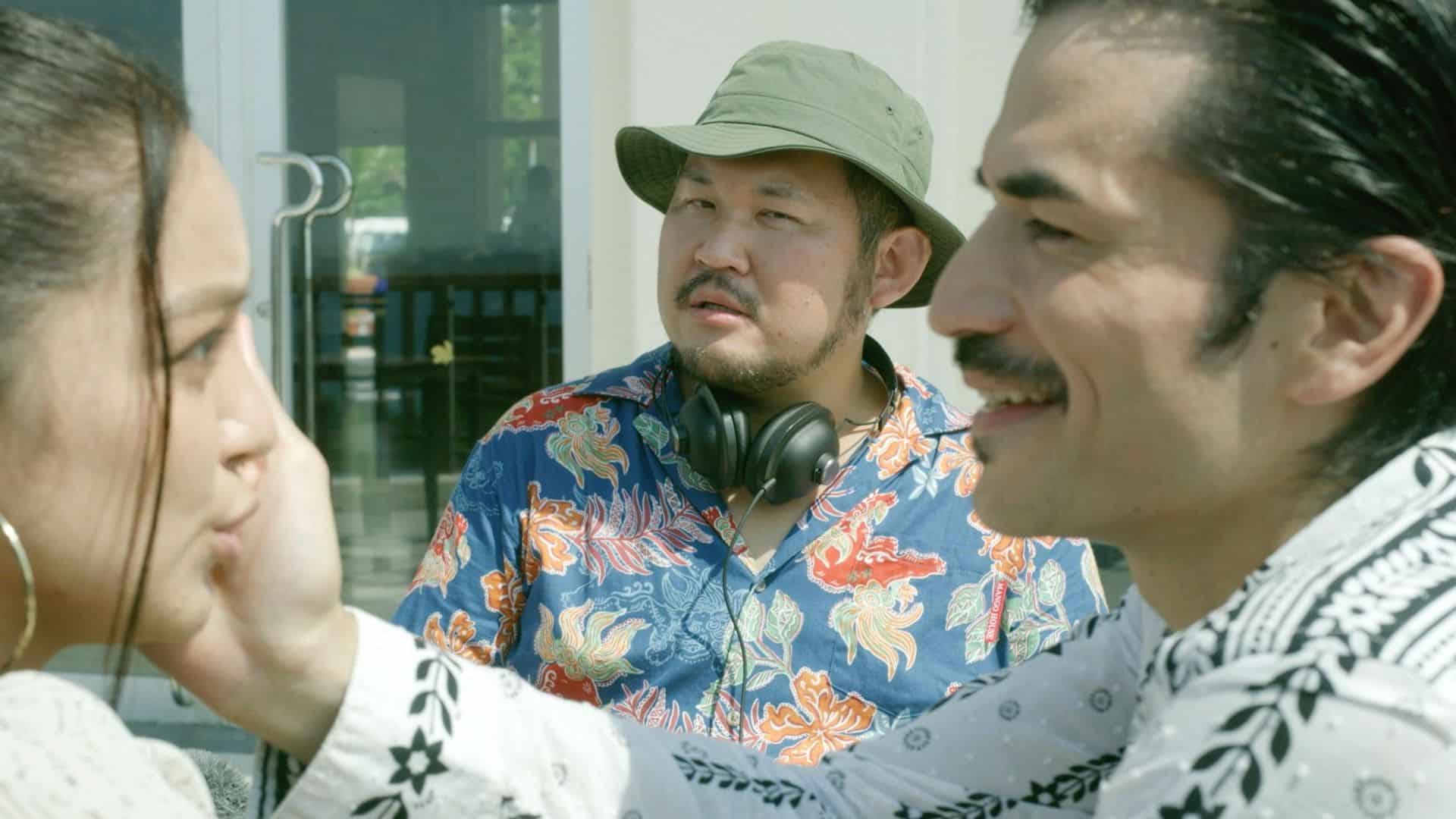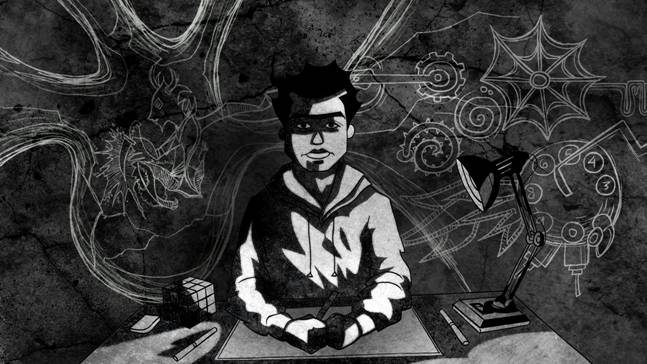Despite the fact that she started her career as an actress and now mostly directs TV series, Hana Matsumoto still manages to direct the occasional feature, with “Dadadada Seventeen” being her most renowned work as of now. Her latest movie is based on the novel “Akegata no Wakamonotachi” by Masahiko Katsuse and looks like a typical Japanese romance, before it is revealed as something a bit more “unusual” than one would expect.
“End of the Pale Hour” is screening at Nippon Connection
The story begins in Tokyo in March, 2012, where the nameless protagonist is about to graduate from university and has just been invited to a gathering of “winners” who have received job offers from well-known corporations. While there, he meets a nameless woman, who, a few moments later, invites him to have a drink with her. He leaves the party, meets her at a nearby park, under the shadow of a sculpted blue whale and immediately falls in love. A few days later they spend the night together and their relationship officially begins, cemented in a getaway in a resort hotel. A bit later though, she breaks contact completely, leaving him shattered. All the while, the young man also has to face the reality of corporate Japan, particularly since his placement in the “general work” department is nothing he was hoping for. Through all his troubles, the only one who stands by his side is a friend and colleague, Ishida
Hana Matsumoto directs a film that functions in three levels. The first one is the romantic story, which essentially includes all the love-at-first-sight cliches, but with two twists. The first one is the plethora of sex scenes, which, although do not exhibit much nudity, are quite sensual in their presentation, in an unusual approach for Japanese cinema. The second is the disappearance of the girl, which presents a sense of mystery and also allows Matsumoto to explore the concert of grief and coping with, while the revelation of what happened, adds another notch to this intriguing approach to the whole romance.
The second element is corporatism, and how the whole thing works, particularly for newcomers, with the “caste” system within the company the young man begins working, and the strictness to ridiculous rules as the bending of the stamping, highlighting this reality in the most eloquent matter. That the young man is disappointed almost from the beginning, with his sole solace being the girl and Ishida, is an element that overlaps the two levels, since he manages to cope right until the girl disappears from his life. At the same time, that Ishida follows a completely different path in the same company from beginning to end, also highlights this level, whose presentation is equally realistic and entertainingly dramatic.
The third level includes a music promotion of sorts, with the scenes that look like music videos found here aplenty, in an element that is appealing, particularly to those who like the music of the rock band Macaroni Empitsu, who have penned the theme song, but also extends the duration of the movie to 116 minutes, unnecessarily.
Furthermore, that the movie lags in general becomes obvious a number of times, with a number of scenes that either last for too long or are unnecessary, with some of the music video ones being the most evident in that regard. As such, the editing emerges as slightly faulty, both in this regard, and also on the relatively slow pace, that strips the movie from most of the tension it could exhibit.
On the other hand, the acting is on a very high level. Takumi Kitamura as the young man highlights both his enthusiasm and his disappointment with eloquent measure, while Yuin Kuroshima is excellent as the “one in charge”. Furthermore, a confronting scene emerges as one of the most impactful in the movie, also highlighting the chemistry of the two, which is, though, evident throughout. Lastly, Raiku as Ishida is quite convincing as the “ultra-cool” friend, with his appearance helping the most in that regard.
Furthermore, Yuta Tsukinaga's cinematography captures the various locations with artistry and realism, while the music video sequences and the presentation of the park are quite memorable.
“End of the Pale Hour” has its issues, particularly regarding its pace and duration, but emerges as an interesting movie in the end, for its story, comments about the corporate world, and acting.


